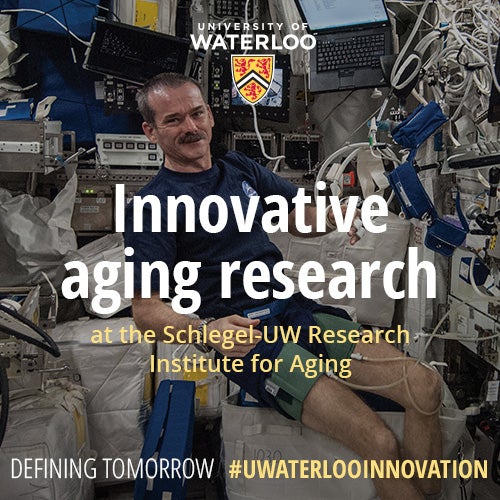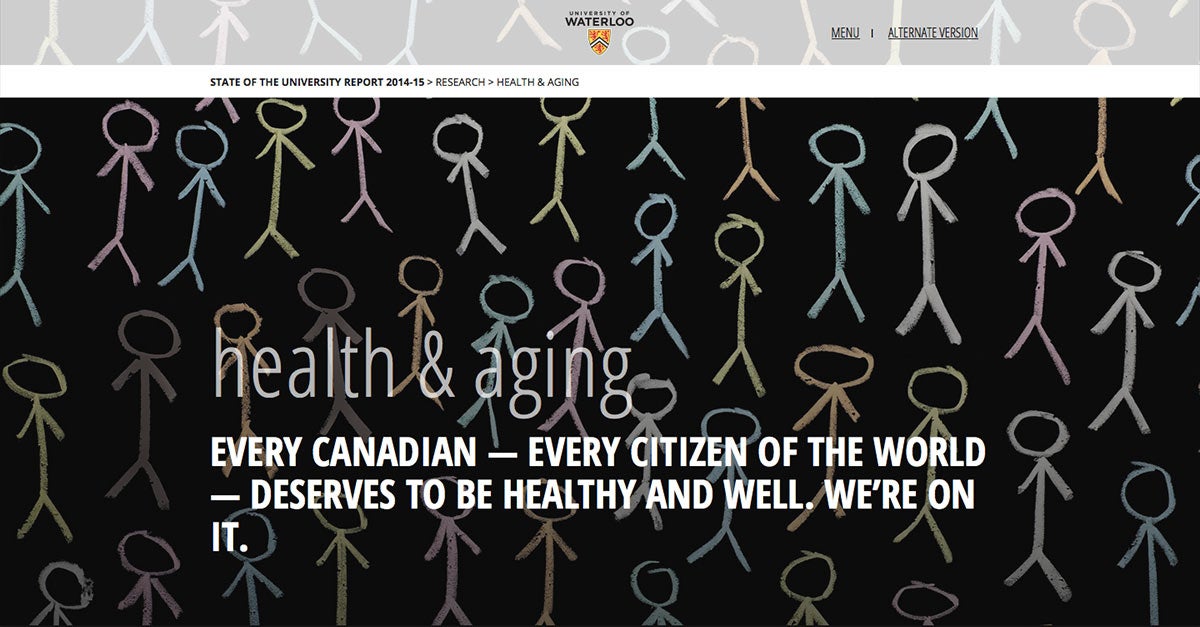

Every Canadian — every citizen of the world — deserves to be healthy and well. We’re on it.
Growth, spending, natural disasters and economic crises have a powerful effect on the health of a nation’s population. Since 2011, the University of Waterloo’s Faculty of Applied Health Sciences has been home to the Canadian Index of Wellbeing, which tracks what societal change means to quality of life for everyday Canadians.
“I think nanotechnology will deliver new tools and revolutionize our health-care system by empowering people to self-diagnose and monitor their own health,” says Shirley Tang, a professor of chemistry in the Faculty of Science and member of WIN. Her research team is close to commercializing patented nanotechnology that could also transform food and environmental safety. A handheld device, small enough to slip in a pocket or backpack and powerful enough to allow health officials, inspectors or even travellers to quickly determine the safety of drinking water or food, aims to give public health back to the people.
Better algorithms are leading to better surgical outcomes for children at risk of skull and facial deformities due to a condition called craniosynostosis. A team including Ricardo Fukasawa and Jochen Koenemann, professors of combinatorics and optimization in the Faculty of Mathematics, and PhD student André Linhares work with surgeons at Toronto’s Hospital for Sick Children, using mathematical models to guide surgical incisions. The goals are better outcomes and reduced surgery times for young patients and better training for surgeons new to the procedure.
If you want insight into the aging process, become an astronaut, like Chris Hadfield, adjunct professor of aviation, cross-appointed to the Faculties of Applied Health Sciences, Environment and Science. Months of weightlessness in space accelerate the changes that people normally experience as they age: stiffer arteries, weaker muscles, bone loss and compromises to the nervous system. Research collaborations between experts in the Faculty of Applied Health Sciences, Schlegel-UW Research Institute for Aging, NASA and Canadian Space Agency astronauts are expanding the horizons for healthy aging.
Chris Hadfield performs an experiment on board the International Space Station. The study, led by Richard Hughson, a professor of kinesiology in the Faculty of Applied Health Sciences, offers insights into recovery from rapid changes in blood pressure, which may have widespread health applications for older adults and could help in the prevention of falls. Photo: NASA